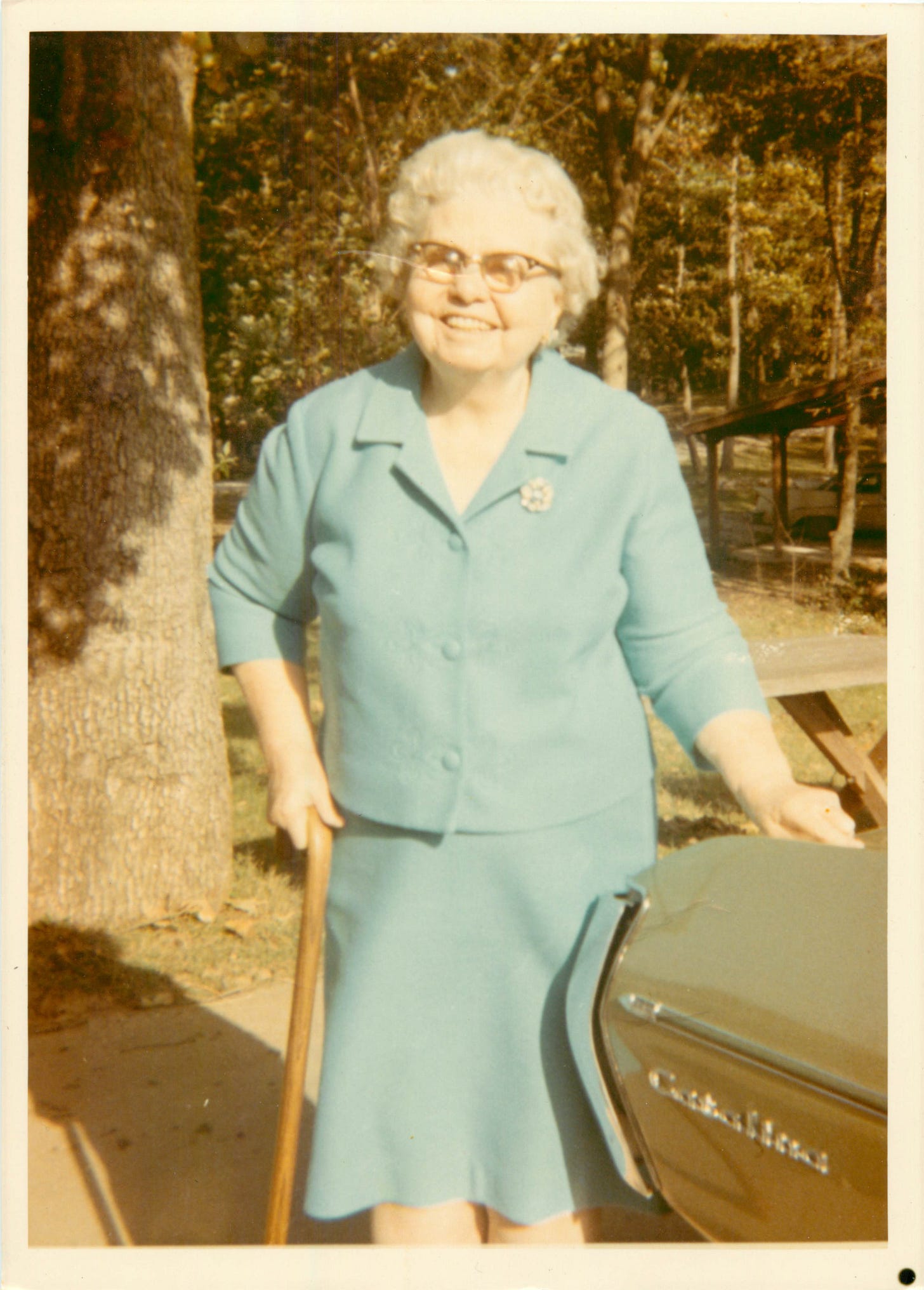This is the fourth post in a series about 65 women who have shaped my life. For more posts, visit Accidental Mentors, a publication of Marquis Mojo.
Although her son adopted me when I was five, my grandmother played a part in my life from its beginning. My memories of those early years are fuzzy, but I do remember how much I enjoyed crawling up on her lap while the aroma of her floral-scented perfume enveloped me.
Born in 1888 in Ontario, Canada, Mimi (an Anglicized and shortened version of the French mémère for Grandma) spoke only French until she was in her 40s and yet became the Scrabble champion of the senior apartments where she lived near us in Arkansas. My grandmother possessed determination, grit, and a competitive spirit that carried her through her life. She wasn’t about to let a bunch of old fogies get the best of her. While other senior residents settled in to watch Lawrence Welk and The Carol Burnett Show in the evenings, Mimi studied her well-worn Scrabble dictionary, a paperback with ear-marked pages and torn cover. I gave up trying to beat her long before I grew old enough to have a chance.
Only as an adult would I learn Mimi was my biological grandmother (that’s a story for another time), so I don’t know if my parents named me after her. Nevertheless, when she called me “Little Anne,” as she often would, I felt like I belonged to someone, our connection deep and sure, like the roots of the aged white oak tree that graced our yard. As I grew older, I would call Mimi on the phone just to hear her say it: “Hi, Big Anne.”
I’d say, “It’s Little Anne.”
I could hear the smile rise in her deep, gravelly voice as she replied, “Well, hello, Little Anne. How are you today?”
As she talked, I’d wrap myself in the long, coiled, yellow cord that hung from the wall phone just outside the kitchen and know that I was loved.
French-Canadian women like my grandmother are known to retain the oral histories of their families going back generations. Between 1663 and 1673, eight-hundred French women, known as the Filles du Roi (the king’s daughters), immigrated to Québec as part of a program established by King Louis XIV, to boost the French population there. My grandmother descended from one of these women, and therefore, so did I. I wish I had asked her to share our family history. I wish I knew now what she knew about her parents, and their parents, and their parents before them, all the way back to Marie Gaillard (1643-1736) who left her home in the south of France to help populate a new nation. Sadly, their stories died with her.
As I think about Mimi today, I’m grateful to her for teaching me not to take the elders in my life for granted, to invite them to tell their stories, to take time to play Scrabble with them, even if I know I'll lose, and to thank them for being in my life. I regret I didn’t learn these things until long after she was gone.






Very enjoyable story. I enjoy your colorful and descriptive writing.
How true about our parents and their siblings. Wishing we had taken more time learning about their lives. Listening more intently to the stories. Watching as they went about their daily activities gardening and cooking and more.
I see where you get that fabulous head of hair!